![P1030290 [Desktop Resolution] P1030290 [Desktop Resolution]](http://www.cdrc-phil.com/wp-content/uploads/2009/10/P1030290-Desktop-Resolution-300x225.jpg) The number of affected by Tropical Storm Ondoy (Ketsana), has already reached more than 4 billion people or 829,498 families, the National Disaster Coordinating Council said.
The number of affected by Tropical Storm Ondoy (Ketsana), has already reached more than 4 billion people or 829,498 families, the National Disaster Coordinating Council said.
The estimated cost of damage to infrastructure and agriculture caused by the Philippines’ worst flooding in four decades has also increased to 9.7 B.
Ondoy battered Metro Manila and parts of Luzon after it made landfall near the boundary of Aurora and Quezon last September 26. Metro Manila, Bulacan, Pampanga, Batangas, Laguna and Rizal were the most affected by the massive floods.
The total number of casualties has already reached 339. Of this number, 298 were killed, 5 injured and 39 missing.
In Metro Manila alone, over 100,000 people from over 900 barangays were evacuated after incessant rains caused heavy flooding in Manila, Marikina, Malabon, Muntinlupa, Makati, Pasay, Pasig, Valenzuela, San Juan and Quezon City. Flood water in some areas have already reached the second and third floors of buildings, forcing residents to seek refuge on the roof of their houses. Other areas such as Pasig and Cainta remain flooded up to this day.
In Bulacan, 113 baranggays in Marilao, Meycuayan, San Miguel and Bocaue Sta Maria, Calumpit, Bustos and Norzagaray were heavily flooded. In Pampanga, 64 barangays in San Simon, Guagua, Masantol, Apalit, Lubao, Porac, Sto Tomas and San Fernando were flooded as well.
In Rizal, several barangays were flooded and 5,000 families were affected by rising floodwater. Many villages were not accessible to the rescue teams, leaving several families trapped on rooftops for hours.
Landslides occurred in Mt Province-Cagayan via Tabuk in CAR; Brgy. San Juan-Banyo, Arayat, Pampanga in Region III; Brgy. Bongalon, Sangay, Camarines Sur in Region V; Tagaytay-Taal Road, and Tagaytay-Talisay Road in Cavite; and Antipolo-Teresa Road and Sumulong Highway in Rizal.
Appeal for assistance
Right after the typhoon, CDRC and its Regional Centers immediately conducted a Damages, Needs and Capacities Assessment (DNCA) in the affected areas.
Of the total number of affected families, the most vulnerable were carefully identified, taking into account the gravity of destruction, their economic capacity to cope, their accessibility to relief services conducted by other agencies, and their willingness to help themselves.
On the basis of these criteria, 100,000 families have been identified as the most vulnerable families from among the total affected. They were among the worst affected by the typhoon and floods. Their houses were destroyed, and many of these areas are still difficult to access and therefore receive very little assistance if any. Immediate needs are food supply augmentation and other essential non-food items.
Needs include:
food provisions
water supply
medicines (for common colds and diarrhea)
clothes
bedding (mats, blankets, mosquito nets)
plastic sheet
kitchen utensils
sanitary napkins
construction materials (plywood, corrugated metal roof, etc)
Donations for the evacuees may be sent through the Citizens’ Disaster Response Center at 72-A Times St., West Triangle Homes, Quezon City. Concerned individuals and donors can easily reach us at (632) 929-9822 / (632) 929-9820. Donations may also be sent through the following bank accounts:
Dollar Account
Account Name: Citizens’ Disaster Response Center
Account Number: 2-63600158-3
Bank: Metrobank, Examiner Branch
Bank Address: Corner Examiner and Quezon Avenue, West Triangle, Quezon City, Philippines
Swift Code: MBTCPHMM
Peso Account
Account Name: Citizens’ Disaster Response Center
Account Number: 3-63600741-3
Bank: Metrobank, Examiner Branch
Bank Address: Corner Examiner and Quezon Avenue, West Triangle, Quezon City, Philippines
References:
NDCC
PAGASA
Reports from:
Community Response for Enlightenment, Service and Transformation (CREST)
Alay Bayan Incorporated (ABI)
Southern Tagalog People’s Response Center (STPRC)

Leave a Reply